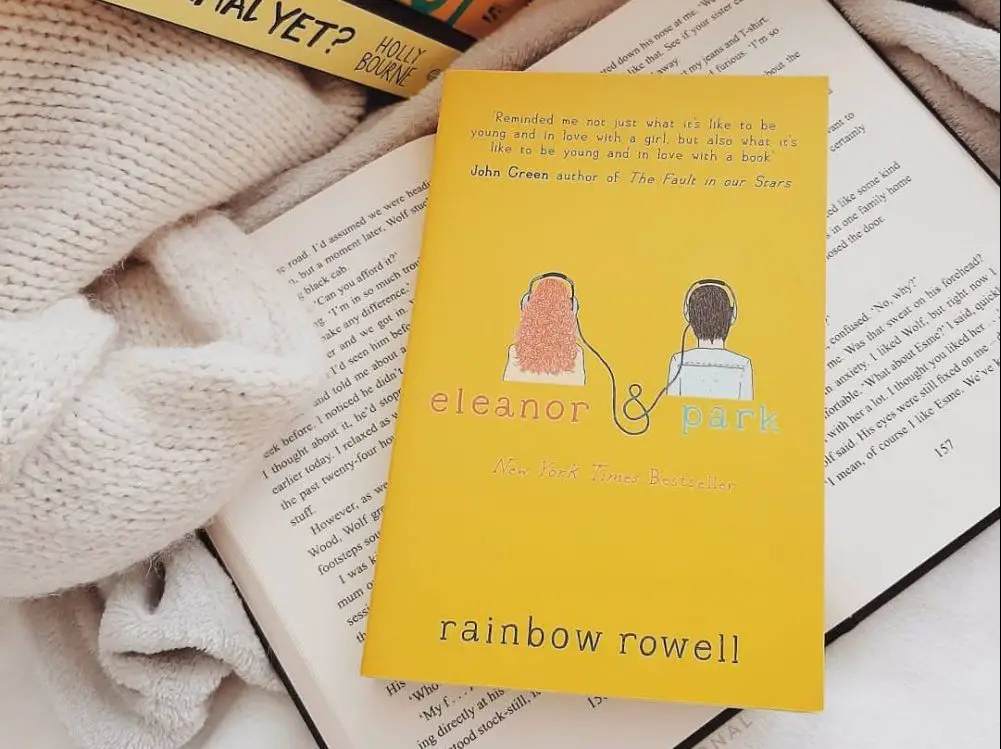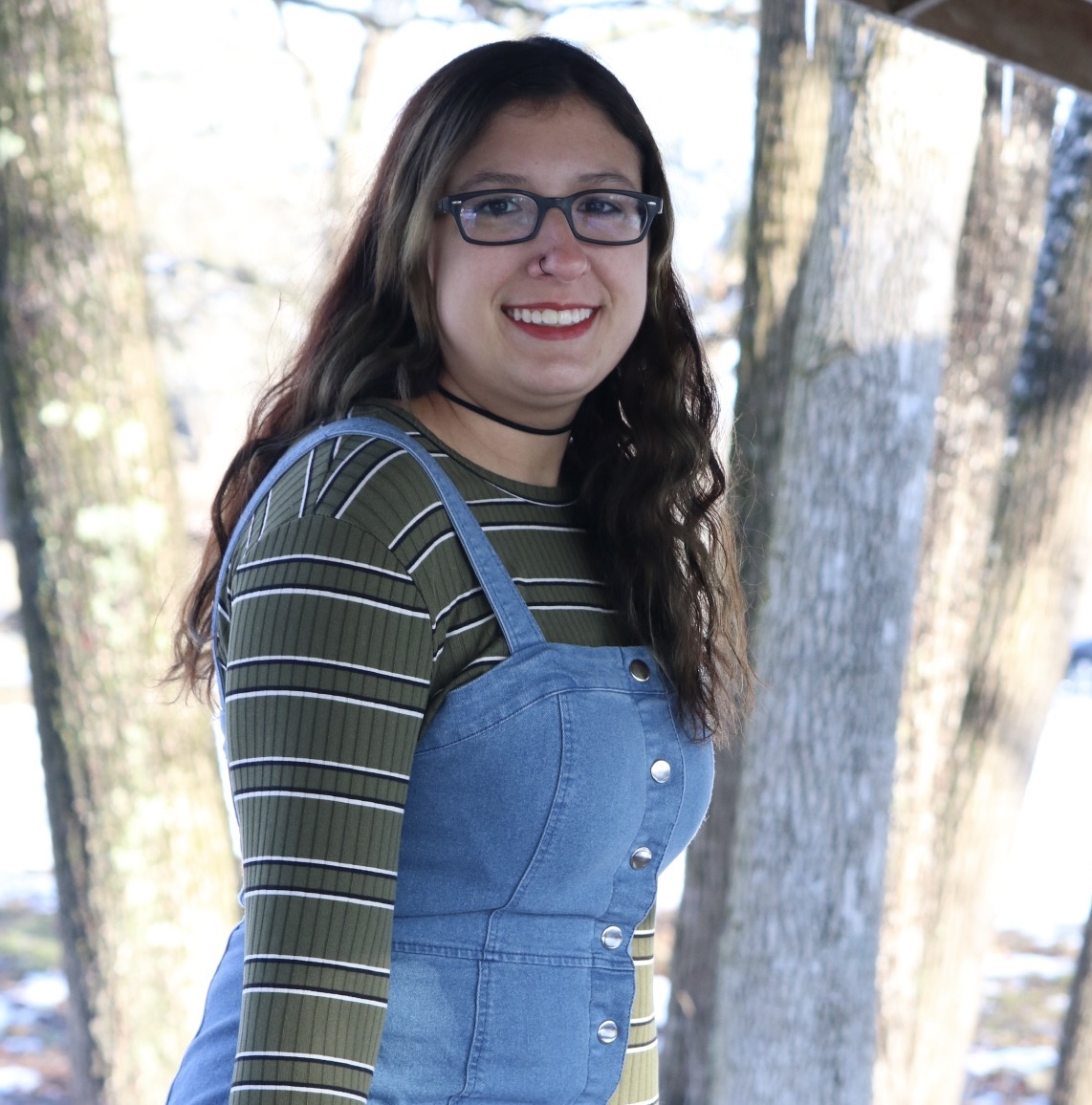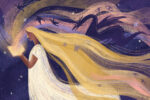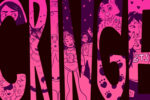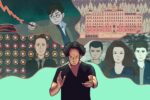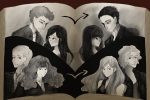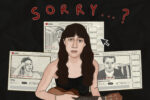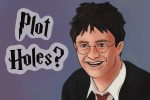Some people read to learn. Some people read to escape. Others read to return home. When we were younger, reading was magic. Even as a teenager or young adult, reading is an experience that is so intimate and special. It creates a connection so concrete that nothing could ever destroy it. Well, until you find out the person who wrote those beautiful words doesn’t actually believe in them. Or that the author is actually problematic and some of the stories they told are almost just as bad, maybe even worse. Once you find this out, how could you possibly still feel that same magic and love toward it?
What constitutes a problematic book? What characteristics cause readers to sadly shake their heads and think, “Well that’s just not right.” Problematic books are often the result of authors addressing an issue far too large for them — whether that be race, religion, sexuality and/or relationships — in a way that could be detrimental to that community and send the wrong message to readers. These novels can become even more problematic when their harmful representations create false narratives.
There are two ways that a book can be problematic. The first is that the book is strictly offensive and dehumanizing. The second is when the book is written on a topic that definitely needs to be addressed, but instead of handling it with care and attention, it’s romanticized instead. There’s a fine line between bringing awareness to serious situations and making people believe that it’s normal when Jake tells his girlfriend that she can’t go out with her friends or wear that pink crop top. Or that it’s normal to kill yourself, but before you do, make sure to make a list of each person you blame for it.
I, unfortunately, have experiences with both. A couple of my favorite books from my high school days were “Eleanor & Park” and “The Mortal Instruments” series. “Eleanor & Park” is a romance novel by Rainbow Rowell and one I hold near and dear to my heart. One of the main characters, Eleanor, really resonated with me when I initially read it. She felt unworthy of love, but still wanted it just like any girl at that age does. At the age of 16, I found absolutely nothing wrong with this book. I loved the way it was written and treasured the connection between Eleanor and Park. However, when I reread it last year, I realized how truly disgusting some of its narrative was.
I thought Eleanor was this girl who came off as cruel but was actually kind. Turns out she was actually just racist and disguised it with backhanded compliments. She is always mentioning Park’s ethnicity — not necessarily in a fetishizing way, but in a “wow, I can’t believe I could ever fall in love with someone that’s Korean” kind of way. Even the way the dialogue of Park’s mom is written plays into the negative, stereotypical way people believe Koreans speak English. When Rowell was confronted about these issues, she completely ignored them as if it never happened or wasn’t a big deal. I wanted to vomit. How did I never notice all these small details? Especially with the number of times I read and reread this book in high school. Am I a horrible person for loving this book? Or am I even worse because I never noticed?
“The Mortal Instruments” is just as bad, but in an entirely different way. “The Mortal Instruments” is a series written by Cassandra Clare and is about a fantasy world full of vampires and werewolves. It’s fun and full of adventures. Well, that’s all that younger me remembers. The aspect that really trips people up is all the incest. The main character, Clary, falls in love with this guy, Jace. It’s cute and sweet and romantic and then we find out they are siblings. Not even in the “Star Wars” kind of way where it’s an accident and once they find out, they never bring it up or pursue it in any way. Oh no, it’s so much worse. They find out about this relation and keep pursuing it, even though they know it’s forbidden. Eventually, the audience finds out they are in fact not related, but does that really make it any better? One, that’s manipulating the audience in a horrible way. Two, why was 16-year-old me not like “Ope, this is screwed up.”
These books were my family at the time. They meant everything to me. I recommended them to everyone I knew and now I just feel embarrassed. I don’t want my friends to think racism and incest are okay, let alone things on the list I enjoy. How come I never realized how problematic my favorite books are?
I discussed this with my friends, and the thoughts behind the “why” turned out to be quite interesting. As children and even as teenagers, we have to think about what is important to us then. What about a story do we perceive as important? We focus on what is happy or what we can relate to, and the rest seems to fade into the background. As adults, we began to see the cruelty of the world and are able to go back and identify the negatives. It’s safe to say we become less optimistic with age. Young people aren’t as concerned about the symbolism or the love triangle. We care about the main story and children will never settle for a bad story.
We aren’t horrible people for loving something we know has problematic values surrounding it. The most obvious example of this is “Harry Potter”; although these books were the entirety of some kids’ childhoods, this doesn’t mean we support J.K. Rowling. It means we grew up believing we were those witches and wizards attending school at Hogwarts.
I think it’s only messed up if we ignore these problematic issues. We’re allowed to say we loved XYZ, but I also believe we are allowed to admit that it didn’t represent something in the way it should. Not only did it not age well, but it also wasn’t made well. In the moment though, those were the words that got us through the hardships in our lives.


